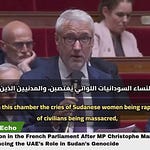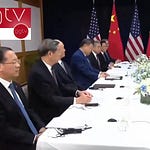Kenyan President William Ruto, in an interview with Al Jazeera, made remarks that have stirred debate across East Africa. Ruto, who has faced widespread criticism for violently repressing protests at home, told Al Jazeera that democracy remains the best form of government. His statement, however, raises questions given that decades of “democratic” governance in Africa have failed to bring consistent stability or prosperity to most citizens.
During the interview, Ruto took aim at Tanzania’s president, often referred to as “Madam Dictator,” saying that it is impossible to secure 97% of the vote in a true democracy. He contrasted this with Uganda, noting that President Yoweri Museveni won his last election with 57%, a figure Ruto described as more realistic in a democratic setting. Ruto’s remarks were widely interpreted as a deliberate snub to Tanzania’s leadership. He notably skipped her inauguration, which was attended only by the presidents of Burundi, Zambia, Somalia, and Mozambique, a sign of regional discomfort with her contested reelection, which reportedly left thousands dead.
Still, Ruto’s comments appeared contradictory. By saying 97% is impossible in a democracy while praising Museveni, who has ruled Uganda for nearly four decades through elections widely viewed as rigged, Ruto implicitly admitted that both leaders share similar flaws. As many observers noted, rigging is rigging, whether 97% or 57%.
Ironically, the Al Jazeera interview itself raised eyebrows, given that the network is based in Qatar, a country with no democratic elections. The entire exchange underscored the hypocrisy and contradictions that define much of African and global political discourse, leaders and networks alike promoting democracy while operating within undemocratic systems.
Beneath the surface, there is also an undercurrent of gender politics. Ruto’s targeting of Tanzania’s female leader reflects a broader resistance to women in top political roles across the continent. While her government faces serious allegations of corruption and repression, the selective outrage from fellow strongmen such as Museveni and Ruto reveals how power in the region remains a closed circle, an old boys’ club masquerading as a democratic alliance.
Authored By:
If you believe journalism should serve the public, not the powerful, and you’re in a position to help, becoming a PAID SUBSCRIBER truly makes a difference. Alternatively you can support by way of a cup of coffee:
buymeacoffee.com/ggtv
https://ko-fi.com/globalgeopolitics









